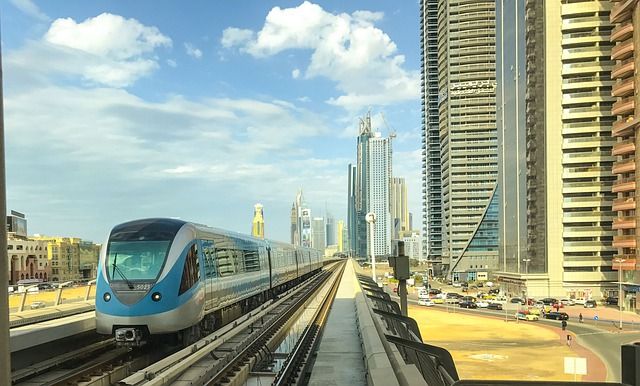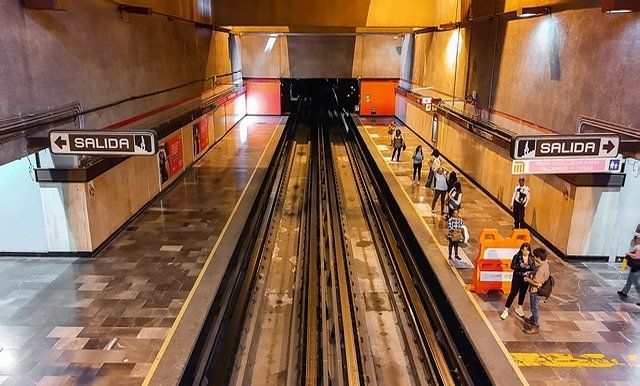
MOST FREQUENT CONSTRUCTION CONTROVERSIES.
I. INTRODUCTION II. CONTRACT PHASES III. PROBLEMATIC CONSTRUCTION WORKS IV. DISPUTES AND SOLUTIONS V. CONCLUSION
I. INTRODUCTION.
Construction contracts are complex by nature, because their drafting involves technical and legal aspects that establish the rights and obligations of the parties. If we reflect a little, we will notice that the drafting of such contracts obeys -in a greater extent- to the prevention and control of deviations by using the past experiences’ knowledge and -to a lesser extent- to the introduction of new elements that allow the completion of the construction work within projected time and costs.
Turns out that even with all these stipulations, and trying to cover all the possible hypotheses that could arise during the execution of the work, there are still controversies between the parties arising from:
- Increased or decreased costs and/or time
- Partial or total suspension of the work
- Partial or total cancellation of the work by the owner
- Termination due to unexpected or force majeure acts
- Termination of the contract for breach by either of the contracting parties
- Defects in the work and/or hidden faults
II. PHASES IN THE CONTRACT.
In general, all construction contracts -public, private, and public-private (PPP)-[1] have the following phases:
- Planning
- Tender
- Contracting
- Execution
- Closing
One of the major causes of construction disputes originates during the planning phase: failure of the design or executive project. When the design -generated in the planning phase- be executed, several problems can arise with it; errors, deficiencies, incompleteness or modifications, whose magnitude -of one or more of these problems- has negative effects over the programmed cost and deadline. Certainly, there are many other reasons why works fail, such as lack of financial resources, non-payment of executed work, inexperience in the contractor/ project management / subcontractors, insufficient information derived from the tender, unrealistic scheduling deadlines, environmental problems, inadequate management of permits and licenses, failure to obtain the working space permit, social problems, lack of personnel, unqualified personnel, incompatibility between the people appointed in charge of the work, just to mention a few of them.
III. PROBLEMATIC CONSTRUCTION WORKS
Below we describe three important constructions worldwide with controversies caused by the problems mentioned above:

Dubai Metro, United Arab Emirates (2005)
3.39 billion USD contract - red line and 1.11 billion USD contract - green line.
5-year delay and 85% cost increase [2]

Boston Big Dig
Tunnel / central artery work in Boston, MA, USA.
Original cost 2.8 billion USD.
Final Project Cost: from 14.6 billion [3] to 22 billion USD
Planned completion year: 1998. Actual year of completion: 2007

Line 12 CDMX Metro
Construction of a new subway line in Mexico City.
Initial cost: 1.3 billion USD, Cost increase 70%
Planned completion year: 2009, Actual delivery year: 2013. [4]
IV. DISPUTES AND SOLUTIONS
One of the contracting parties must assume responsibility when the discussed problems’ affectations create a negative impact on the cost of the work. Disagreements arise when none of the contracting parties wishes to assume this additional cost and insists that the other party should pay it. When the parties -despite multiple solution attempts- fail to reconcile them, controversies may arise. These disagreements may escalate from a discrepancy or conciliation to an arbitration or court trial, all in detriment of the work, which may in the best of cases, be concluded, and in the worst, be unfinished. In any case, the documentation and professional quantification of the costs has a great significance during the decision-making process, because the decision to continue with the controversy or not might depend on this point.
To prevent disputes from becoming arbitration or legal litigation, the construction industry has implemented various binding and non-binding dispute resolution mechanisms: mini trial, third party mediation, expertise, neutral expert, independent expertise, dispute boards, intermediate dispute resolution or the authorized representative.
Likewise, to achieve successful infrastructure projects, the construction sector has implemented methodological, technological, and legal solutions: BIM, LEAN, blockchain contracts, standardized FIDIC contracts, NEC, etcetera.
While it is true that the use of one or more of these solution tools have given successful results -i.e., infrastructure of the London Olympics in 2012 or the Hong Kong airport construction, among others-, it is also true that there are still serious problems and controversies in the execution of major works, for example, the Lima subway in Peru.[1]
V. CONCLUSION
- It is during the execution of the work that disagreements arise and not all disagreements result in formal disputes.
- The party asserting a disagreement must determine the root cause, quantify the costs, and prove its assertions. Only then will it be able to move forward to a dispute in good standing.
- Risk is one of the most important costs in infrastructure projects, so its proper management is of utmost importance to reduce disputes.
- As there is no perfect design or work execution, it is reasonable to assume that all constructions will have unforeseen events and therefore contracts should contain flexible solutions -such as the ones mentioned above- for a proper solution of the problems.
- The work completion and operation initiation must be the priority for the parties, always complying with the planned quality. Completing the works is the most important thing and the builders should never forget it.
- If you require legal help, consultancy, or advice in structuring an infrastructure project, your contracts, and/or legal and technical support in construction disputes, do not hesitate to schedule an appointment with us.
Construbufete Juridico S.C.
https://www.despachomata.com
[1] It is noted that PPP contracts may include operation and maintenance.
[2] Data obtained from the following URL: https://edisciplinas.usp.br/pluginfile.php/4587167/mod_resource/content/1/Time%20and%20cost%20overruns%20in%20the%20UAE%20construction%20industry%20a%20critical%20analysis%20-%20artigo%203.pdf
[3] Data obtained from the following URL: https://projectcostsolutions.com/lessons-learned-boston-big-dig/
[4] Data retrieved from the URL: http://www.scielo.org.mx/scielo.php?script=sci_arttext&pid=S1405-10792018000300019
[5] Retrieved from the following URL: https://perureports.com/lima-metro-line-2-delays-postpone-opening-date/5498/